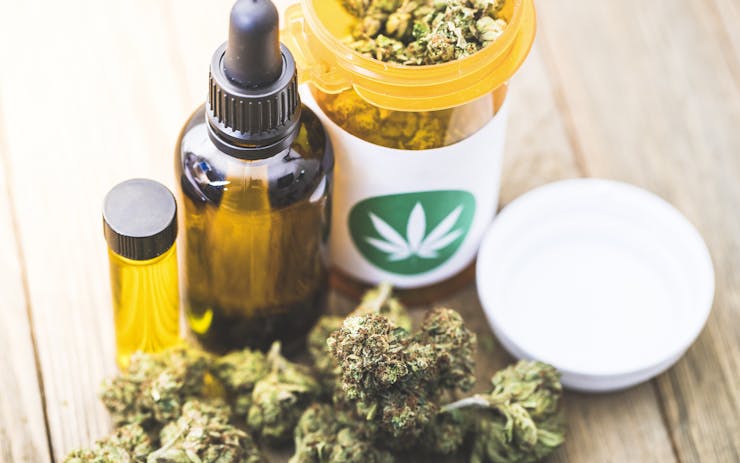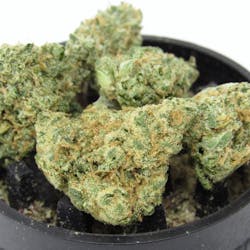What Are the Most Common Qualifying Conditions Authorized for Medical Cannabis?
Most states across the US have adopted medical cannabis laws that let patients access cannabis legally. However, each state has a unique list of approved medical conditions that they have deemed appropriate for cannabis use.
The following conditions are among the most commonly approved for use of medical cannabis. If you’re looking to acquire a medical cannabis authorization, be sure to check this state-by-state guide to see if your condition is approved in your state.
Epilepsy and Seizure Disorders
Approved in almost every state, cannabis has become widely recognized for its anti-seizure properties. The non-intoxicating cannabis compound called cannabidiol (CBD) has been found to significantly reduce seizure frequency—as much as 42%, according to a 2018 study. Many states may also approve cannabis, specifically CBD, for the treatment of pediatric epilepsy in minors.
Explore Dispensaries for CBD Products
Cancer
While research is still exploring the ways cannabis may treat cancer itself, most states now acknowledge its ability to abate symptoms relating to cancer and chemotherapy, including pain, nausea, and appetite loss. For cancer-related symptoms, many patients prefer cannabis products that contain a balance of THC or CBD.
Multiple Sclerosis (MS)
Some of the strongest advocates in the cannabis movement are patients with multiple sclerosis, as they’ve experienced firsthand the benefits cannabis has to offer. Cannabis has been found to alleviate many symptoms associated with MS, including pain, insomnia, inflammation, muscle spasms, abdominal discomfort, and depression.
Find Strains That Help With Muscle Spasms
Glaucoma
Glaucoma is a an eye condition that can lead to permanent damage in the eye if left untreated. While some ophthalmologists are still lukewarm on the use of cannabis for glaucoma, healthier non-smoked forms are becoming increasingly available, especially in legal states.
Shop highly rated dispensaries near you
Showing you dispensaries nearHIV/AIDS
Some of the earliest and most effective medical cannabis advocacy in the US was rooted in its ability to treat HIV/AIDS symptoms. It makes sense, then, that so many states have approved the condition for HIV/AIDS patients suffering symptoms like appetite loss, nausea, and fatigue.
Neurodegenerative Disease
Medical cannabis has become widely approved for neurodegenerative diseases such as Lou Gehrig’s Disease (ALS), Alzheimer’s, Parkinson’s, and Huntington’s. For many suffering these debilitating diseases, cannabis can help restore quality of life by improving cognition and mobility, relieving spasticity and rigid muscles, and more.
Pain
Although there are several different types of pain, many are approved by states as a qualifying condition. Check to make sure your state has approved the specific type of pain you experience, and note that cannabis affects each type of pain uniquely. However, many doctors and patients have found that cannabis products combining both THC and CBD tend to be most effective.
Explore Strains Recommended for Pain
Nausea
Nausea is a commonly approved condition for medical cannabis, although there are nuances in its definition from state to state. For example, some states approve cannabis for nausea at a broad level, while others require “severe” or “intractable” symptoms. THC in particular is known to relieve nausea and vomiting—just be mindful of your dose, especially when using edibles. Too much THC can worsen nausea.
Find Strains That Help With Nausea
Cachexia/Wasting Syndrome
Cachexia, or “wasting syndrome,” is a condition that typically accompanies cancer and HIV/AIDs, and is characterized by appetite and weight loss along with weakness and fatigue. Given that cannabis—especially THC-rich varieties—has the potential to alleviate symptoms like these, it’s no surprise that so many states include cachexia in their qualifying conditions.
Find Strains That Stimulate Appetite
Post-Traumatic Stress Disorder (PTSD)
PTSD is an anxiety disorder that is often expressed in panic episodes and hypervigilance, in addition to mood and sleep disturbances. In the right dose, and most often with high levels of CBD, cannabis can ease PTSD-related anxiety. Cannabis before bedtime has also been known to help patients fall asleep faster, stay asleep longer, and suppress nightmares.
For more information on state-specific qualifying conditions and obtaining medical cannabis, be sure to check out the Leafly resources below.
Image by LPETTET/iStock





